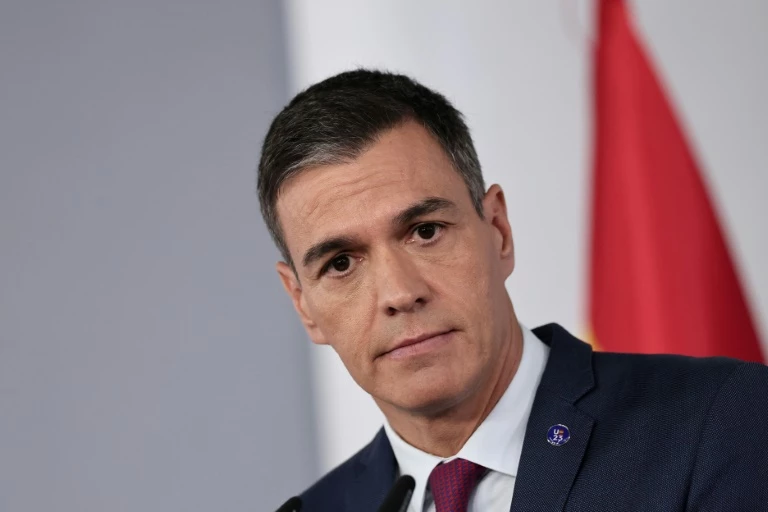Pedro Sanchez, who secured a new term as Spain's prime minister on Thursday on the back of a controversial deal with Catalan separatists, has made a career out of making political gambles.
"I have learned to push myself until the referee blows the final whistle," wrote the head of Spain's Socialist party and former basketball player in his 2019 autobiography, "Resistance Manual".
Deemed politically dead after his party suffered a drubbing in May local and regional elections, the 51-year-old -- known as 'Mr Handsome' at the start of his political career and now one of only a handful of Socialists to head a European government -- had gone all out to keep the job he has held since 2018.
While his Socialists finished second in a July general election, behind the conservative Popular Party (PP), Sanchez cobbled together a majority in parliament with the support of the far-left party Sumar and smaller regional parties, including Catalan separatists.
In exchange for their support in a vote of confidence in parliament on Thursday, Catalonia's two main separatist parties demanded a controversial amnesty for hundreds of people facing legal action, mainly over their roles in the northeastern region's failed push for independence in 2017.
Sanchez had previously opposed such a move. He has agreed to an amnesty now despite major protests staged by the right.
- Knack for survival -
Paloma Roman, a political scientist at Madrid's Complutense University, said Sanchez has "political flair" and this gamble "had succeeded", although she warned his new mandate would be "very complicated".
With a charming smile and affable personality, Sanchez has been written off politically on several occasions, only to bounce back.
Sanchez emerged from obscurity in 2014 as a little-known MP to seize the reins of Spain's oldest political party.
A leap-year baby born in Madrid on February 29, 1972, Sanchez grew up in a well-off family, the son of an entrepreneur father and civil servant mother.
He studied economics before getting a master's degree in political economy at the Free University of Brussels and a doctorate from a private Spanish university.
Elected to the party leadership in 2014, Sanchez was written off politically after leading the Socialists to their worst-ever electoral defeats in 2015 and 2016.
Ejected from the leadership, Sanchez unexpectedly won his job back in a primary in May 2017 after a cross-country campaign in his 2005 Peugeot to rally support.
Within barely a year, the father of two teenage girls took over as premier in June 2018 after an ambitious gamble that saw him topple conservative Popular Party leader Mariano Rajoy in a no-confidence vote.
- 'Never had it easy' -
Always immaculately dressed, the telegenic politician -- who likes running and looms over his rivals at 1.9 metres (6 foot 2 inches) tall -- has made a name for being stubborn and tenacious.
Over the past five years, he has had to play a delicate balancing act to stay in power.
In February 2019, the fragile alliance of left-wing factions and pro-independence Basque and Catalan parties that had catapulted him to the premiership cracked, prompting him to call early elections.
Although his Socialists won, they fell short of an absolute majority, and Sanchez was unable to secure support to stay in power, so he called a repeat election later that year.
Forced into a marriage of convenience with the hard-left Podemos, despite much gnashing of teeth inside his own party, Sanchez has managed to stay in power despite his coalition holding only a minority in parliament.
Spain's first premier to be fluent in English, Sanchez pushed a raft of leftist reforms and oversaw a government with the highest-ever number of women.
Sanchez "has never had it easy" but his current situation is "the most complicated he has ever known" since he will have to govern with a wide range of parties, said Roman.


